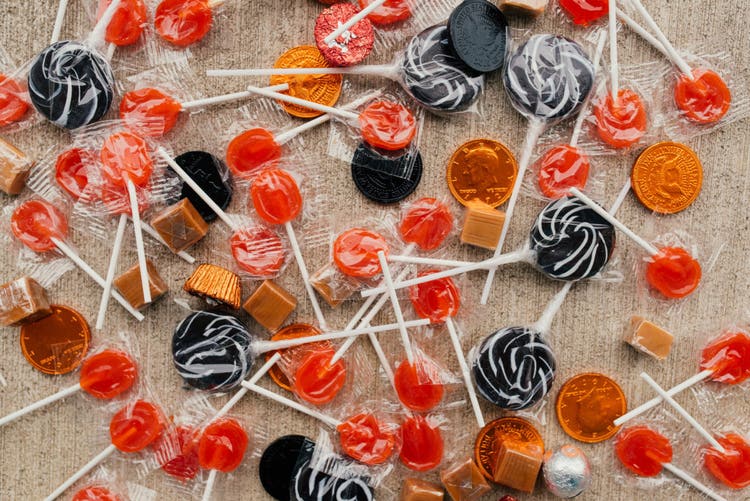News Flash: The Healthiest Way to Eat Leftover Candy and More Health News

Every week, we’re bringing you a roundup of the latest health and wellness news to hit the wire. This week, we examine why one top nutritionist says superfoods are a marketing ploy, what research says stress does to your brain and the best way to finish off that leftover Halloween candy.
Superfoods, super bunk?
Macadamia nuts. Avocadoes. Wild blueberries. Pomegranates. All are claimed to be nutritional powerhouses that will help you live your healthiest life. But while these do contain some of the nutrients our body needs, no single food makes a diet healthful or acts like a drug, argues nutritionist Marion Nestle in an article for The Atlantic. According to Nestle, these foods aren’t much better for you than others in the produce aisle or aren’t consumed in the right quantity to have much of an effect on health.
Focusing too much on so-called superfoods, Nestle says, keeps us from eating the wide array of fruits, vegetables, grains, beans, nuts and protein that our body needs. Moreover, Nestle argues, the research supporting these superfood health claims is thin, and what does exist is often funded by food producers. Take candy maker Hershey (which sells chocolate-covered macadamias)—the company sponsored a study supporting Royal Hawaiian Macadamia Nut’s petition of the Food and Drug Administration to market macadamias as a secret weapon to reduce the risk of heart disease (when eaten as part of a healthy diet).
Another example Nestle cites is The Maine Wild Blueberry Commission promoting its status as the fruit with the highest level of antioxidants. But studies of how well antioxidants actually protect the body against disease are inconsistent, Nestle argues. In fact, the U.S. Department of Agriculture no longer publishes data on food antioxidant levels “due to mounting evidence that the values indicating antioxidant capacity have no relevance to the effects of specific bioactive compounds, including polyphenols on human health.”
While Nestle argues that “superfood” is a “nutritionally meaningless term,” eating these so-called “superfoods” in conjunction with a well-rounded diet full of fruits, veggies, healthy fats, lean proteins and complex carbohydrates is definitely the way to go.
Stressed-out brains
You know that stress is bad for your health, but did you know it actually affects the size and function of your brain?
According to a new study in the journal Neurology, middle-aged adults with the highest levels of the hormone cortisol, which is released during stress, had lower brain volume and cognitive functioning than people with lower levels of the hormone.
The study, covered in Time, did not follow people to see whether they went on to develop dementia, but these effects could be a precursor to cognitive decline later in life, says study co-author Dr. Sudha Seshadri, a neurology professor at UT Health San Antonio.
The study’s 2,200 adult participants went through a psychological exam, which tested memory and thinking skills at the beginning of the study and then again eight years later. They were given blood samples to measure cortisol levels, as well as MRI scans to measure brain volume. After analyzing these assessments and accounting for demographic and health information, researchers found a connection between cortisol and lower total brain volume and lower scores on memory and cognition tests.
While more research is necessary to prove cause and effect, Seshadri says it’s a good idea to engage in activities that have been shown to reduce stress such as meditation, exercise and yoga as well as getting adequate sleep and having a healthy social life.
The best way to eat that leftover Halloween candy …
Because you know you’re going to.
Also from Time, if you can’t bring yourself to throw out that last bag of snack-size M&M’s or Kit Kats, here’s a little advice on the best way to consume it.
First, says Christy Brissette, MS, RD, a Toronto-based dietitian, don’t eat it by itself. Make sure you eat it with some protein, healthy fat and fiber to slow the absorption of sugar into your bloodstream, preventing insulin from spiking and then crashing. (That’s important because high insulin levels are linked with obesity, Type 2 diabetes and even some types of cancer.)
Brissette suggests popping a couple of pieces with a post-workout protein shake to replace the glycogen—a form of glucose—burned during exercise, at the same time the protein is helping to rebuild and repair muscles.
Photo credit: Melanie DeFazio, Stocksy